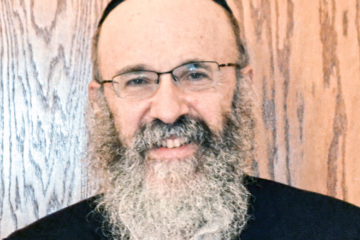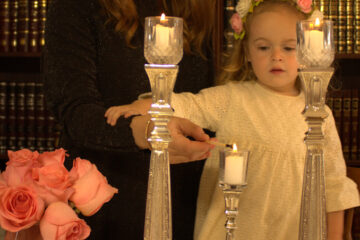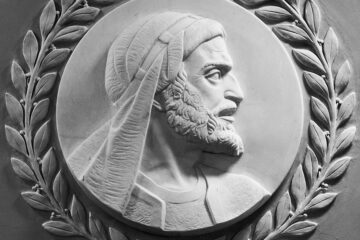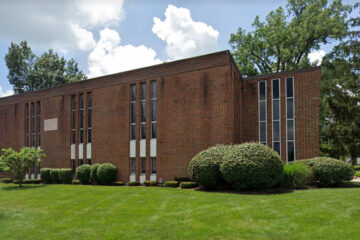What sets your clock?
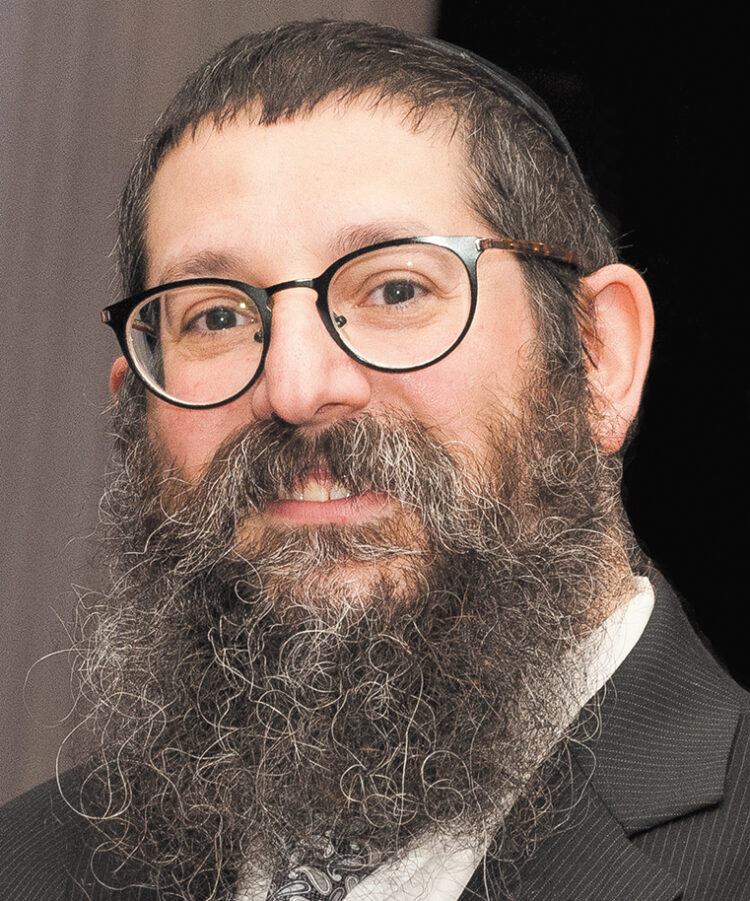
By Rabbi Nochum Mangel, Chabad of Greater Dayton
Not so long ago or so far away, a community council decided to redesign its town center. It wanted to create a plaza where people could congregate, socialize, relax, and enjoy the beauty of their neighborhood and nature. The architect came up with a beautiful plan that featured scattered benches, winding trails, and splashing fountains.
At the very center of the plaza, they planned for an iconic tower: a focal point and an emblem of the town. But while it represented their town, it also had to reflect a sense of personal identity and belonging. In the end, they decided to build a monumental clock tower with four large clocks perched at the top, each facing a different direction.
But there was some resistance to the initial idea, so much so that in response, the architect offered to lower the clocks to just about eye level. The majority felt that would be more welcoming, and it would also make it easier to see. No one would need to look up into the bright glare of a sunny day to catch the time.
At the grand dedication of the new plaza, most of the town turned out, and everyone seemed impressed and happy. But after only a week, people noticed that the clocks were breaking down and the hands of the clocks were bent out of shape.
Many people reported as well that the clocks were always off, sometimes too fast, sometimes too slow, and they were upset that they couldn’t rely on them even to be off a predictable amount.
In response, the council launched an investigation and staked out the plaza to see if they might observe something that would give them a clue as to what was going wrong.
It didn’t take them long to see what the problem was. They noticed that townspeople would look to the clock to see the time and then look down at their own watches.
Since the times rarely precisely agreed, they would reach over and adjust the hands so the clock agreed with their watch. This happened time and again; very few, it seemed, could refrain from correcting the town’s new clocks.
Hearing the investigators’ report, the town council decided to remedy the situation by raising the clocks up out of reach. When the fix was completed, the investigators went back to observe, and they saw strikingly different behavior. The passers-by still would look at the clock and still notice a discrepancy between the clock and their own timepiece.
But with the town clocks out of reach, the people resolved the difference by adjusting their own watches. The town clocks were spared, and moreover, everyone in the city now all shared one standard time.

The Jewish calendar marks out the holiness of time, and the month of Tishri marks the time when we reset our souls.
Our sages tell us that this month of Tishri is filled to the brim with holidays. It is a time to focus on deep and holy matters, a holy month filled with opportunities for advancing in spirituality, a time to reset and re-synch with the core of our being.
As the month unwinds, we progress through a series of important resets. On Rosh Hashanah, we commemorate creation, and we call to mind and celebrate that the Creator is involved in our lives.
On Yom Kippur, we celebrate the gift of forgiveness, that our errors do not doom us forever, but that instead, we can make amends, turn over a new leaf, and attain atonement.
On Sukkot, we celebrate the gift of protection, God’s guarantee that we will survive and outlive all our oppressors. And on Simchat Torah, we celebrate the gift of the second set of Divine tablets, which brought more gifts than the first ones.
Although we received the Written Torah along with the first tablets, we only received the Oral Torah with the gift of the second tablets.
It is only with the second tablets, then, that we can celebrate the full range of Divine wisdom and its relevance to every aspect of our ever-changing lives, continuously unfolding as the Oral Torah deepens in every generation.
We can use the Torah in different ways. We can use Torah to inform our values, to show us how to live, to teach us what is right and wrong.
Or we can use Torah to justify and rationalize our preconceived notions of what is right and wrong, what is noble, and what is shameful.
We can invite the Torah to teach us or we can find something in the 3,300-year tradition of Torah that can be used to justify any point of view one might favor.
Responsible study always strives to see things in their context, as the Torah intended, rather than fastening on isolated words or ideas because they appeal to one’s own bias.
This has been and remains the role of the Oral Torah, clarifying our understanding of the text of the Written Torah into the great context of its Author and Teacher.
It traces what Torah means in all the particularities of life from the time of the Mishnah, then of the Gemarah, then of Geonim (heads of the ancient Talmudic academies of Babylonia) and of all the following sages of the earlier and later generations.
The constant testing of the Talmudic method works to keep us alert to the real needs of each time and place and helps to keep our vision true and unclouded by egotism and bias.
It points us away from self-congratulation and gives us the resources of soul to recognize and disarm partisan divisiveness.
Look at the Torah as an integral whole. If it is merely a random collection of ideas or buzzwords with no core, no organic unity, then what is the source of its authority?
Its power is as a Divine teaching, infused with comprehensive and sovereign wisdom. Only so conceived does it have authority.
In one of the most famous parts of the Oral Torah, the Ethics of Our Fathers, the Mishnah cautions us not to co-opt the Torah for selfish purposes.
We should not use it to further our own cause but rather to clarify what we should be standing for, the larger cause in which our life is united with those of our people and God’s purpose in creation.
The Torah is our clock. We don’t really want to break its arms and compromise its usefulness. Torah is not there to justify our opinions but to mold and shape our views and character so that they are at one with God’s intention in creating us.
This is the sweep of the holidays through this powerful month of Tishri. It brings us to recognize that there is a God, that there is right and wrong, that we are protected, and that we have been given a Torah whose infinite qualities open up to us the infinite wisdom and blessing of the Creator in our lives.
Let us value that gift. The Torah is here to help us change for the best, moving ever higher in active partnership with God.
To read the complete September Dayton Jewish Observer, click here.


